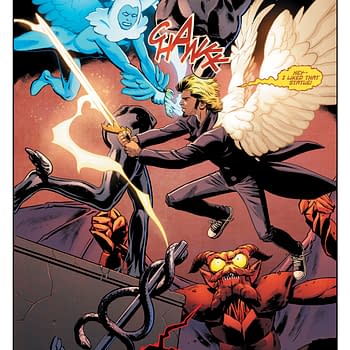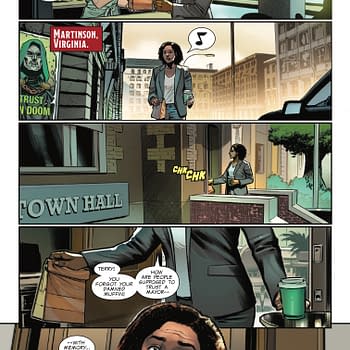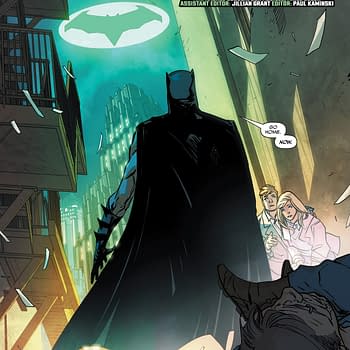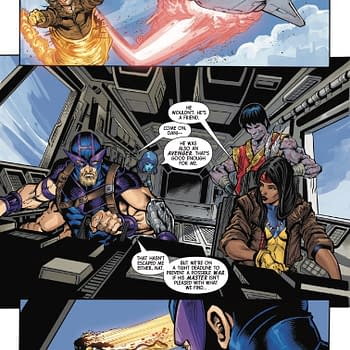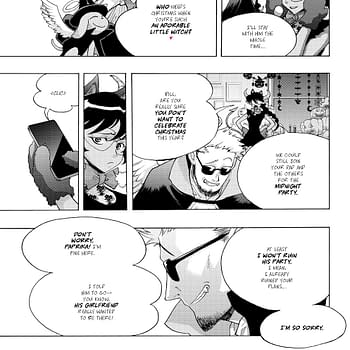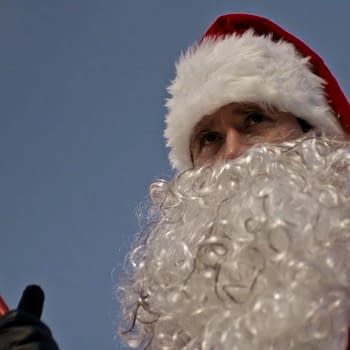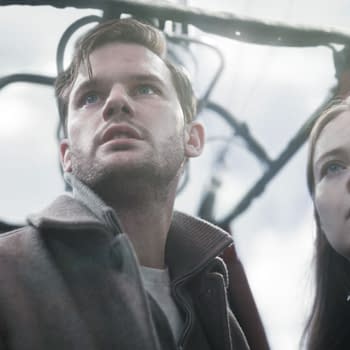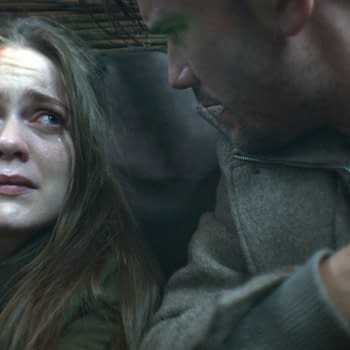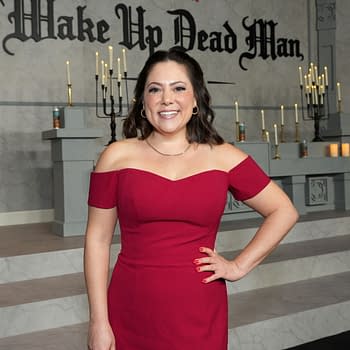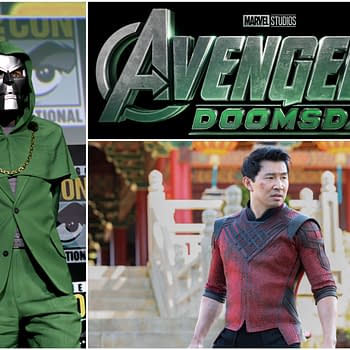Posted in: Movies | Tagged: disney, esplanade productions, gary goldman, lawsuit, zootopia
Lawsuit Claims Disney Copied Zootopia From Screenwriter Gary Goldman, Alleges Culture Of Unauthorized Appropriation
The Walt Disney Co is the subject of a new lawsuit alleging they stole the concept for the Oscar winning film Zootopia from screenwriter Gary Goldman. The lawsuit, filed by Esplanade Productions, Inc. against Disney and several of its divisions, refers to the Gary Goldman whose credits include writing the movies Big Trouble In Little China, Navy Seals, and Total Recall, and not the Gary Goldman who is the writer and co-director of the 1989 animated film All Dogs Go To Heaven and on 40 episodes of the All Dogs Go To Heaven TV series, as well as writer and director of numerous other animated films, just to be clear.
The lawsuit alleges that "Although The Walt Disney Company rigorously enforces its copyrights, it has developed a culture that not only accepts the unauthorized copying of others' original material, but encourages it," and quotes one of Zootopia's directors and writers, Byron Howard, as allegedly saying, "Don't worry if you feel like you're copying something, because if it comes through you, it's going to filter through you and you're going to bring your own unique perspective to it."
Esplanade's lawsuit goes on to name past projects which it claims copied existing works:
They did it with The Lion King when they copied Osamu Tezuka's Kimba The White Lion. They did it with Toy Story when they copied Jim Henson's The Christmas Toy. They did it with Monsters, Inc. when they copied Stanley Mouse's Wise G'Eye. They did it with Up when they copied Yannick Banchereau's Above Then Beyond. They did it with the Frozen trailer when they copied Kelly Wilson's The Snowman. And, they did it with Inside Out when they copied Frédéric Mayer's and Cédric Jeanne's Cortex Academy, among other sources.
The complaint then goes on to allege that Goldman was the victim of similar theft after allegedly pitching his idea for Zootopia to Disney executives on two occasions, in 2000 and 2009:
They did it with Zootopia, too, when they copied Gary L. Goldman's Zootopia. Twice – in 2000 and 2009 – Goldman, on behalf of Esplanade, pitched Defendants his Zootopia franchise, which included a live-action component called Looney and an animated component called Zootopia. He provided a treatment, a synopsis, character descriptions, character illustrations, and other materials. He even provided a title for the franchise: "Zootopia." Instead of lawfully acquiring Goldman's work, Defendants said they were not interested in producing it and sent him on his way. Thereafter, consistent with their culture of unauthorized copying, Defendants copied Goldman's work. They copied Goldman's themes, settings, plot, characters, and dialogue – some virtually verbatim. They copied Goldman's title, "Zootopia." They even copied Goldman's character designs and artwork, as shown in the side-by-side comparison below:
Here is the artwork provided in the lawsuit:
The suit later claims that Goldman and Esplanade provided Disney with copies of "Character Descriptions, Character Illustrations, Treatment, Synopsis, and other materials" related to his idea. The complaint reads:
The Disney Zootopia is substantially similar to the Goldman Zootopia. The Goldman Zootopia involves a human animator who creates a cartoon world of animated anthropomorphic animal characters called "Zootopia." The Disney Zootopia copies substantial elements of that cartoon world, calls it "Zootopia," and uses substantially similar settings, characters, dialogue, mood, pace, artwork, and, although differing superficially, plot points and story structures, to express substantially similar themes. Defendants used the expression of substantial elements of the Goldman Zootopia, including the arrangement, selection, and combination of elements, to achieve a substantially similar concept and feel.
And goes on to cite specific instances related to themes, setting, dialog, characters, plot, mood, pace, and artwork. The filing is 37 pages in length.
Disney has denied the claims in the lawsuit, telling website Variety:
Mr. Goldman's lawsuit is riddled with patently false allegations. It is an unprincipled attempt to lay claim to a successful film he didn't create, and we will vigorously defend against it in court.







